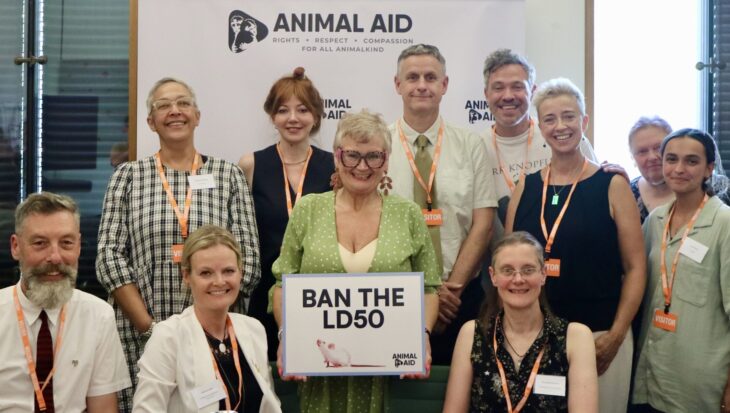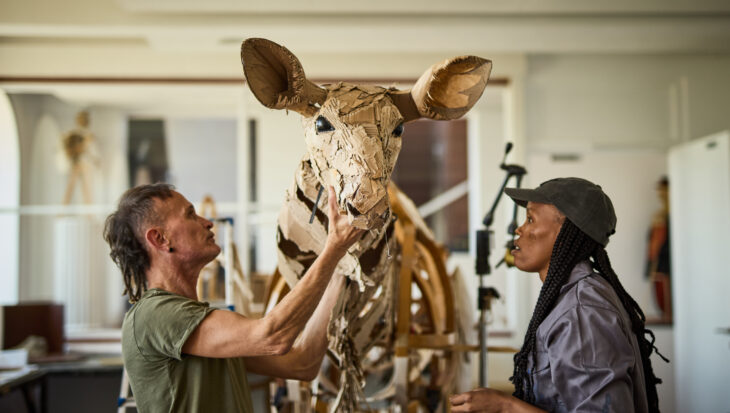Animal Aid in parliament to discuss ending animal tests
Yesterday, Animal Aid hosted a roundtable in Westminster, to meet with MPs and other invited guests to discuss the ending the LD50 and other animal tests.
Posted 02 Jul 2025

Posted on the 31st March 2004
Major report shows that whipping horses reduces their chances of winning
The more horses are whipped during a race the less chance they stand of winning. This is the startling finding of what is probably the most comprehensive-ever investigation of whip use in British racing.
Published this week by Animal Aid to mark the national campaign group’s Horse Racing Awareness Week, A Hiding To Nothing is based on a meticulous analysis of 161 races that were run between October and November 2003. They involved 1500 horses and 285 jockeys. Nearly 200 tables describe how often and when in a race a whip was used. The whip rate of individual jockeys is tabulated and the report shows which branch of racing (All Weather, the Flat, National Hunt) resorts most often to the whip.
Whip advocates argue that it assists horses to perform better and run more safely. It is also said to provide helpful chastisement for when they behave ‘badly’. However, the Animal Aid report shows that whipping is more likely to drive horses off a true line and place them and other horses in danger. The same evidence shows that whipping is less likely to produce an ‘improvement’ in behaviour. Rather, horses become fearful, hesitant and less likely to perform to their potential.
More devastating for the industry itself is the finding that, the more often horses are whipped the less chance they stand of winning. Horses whipped at the start of a race almost never win, and that pattern holds until the finish line. In the final part of a race – where the whip is most often used – jockeys who use it least win more frequently.
Forty of the 161 races featured in the survey (around 25%) were won by horses who were not subjected to any whipping. And more than 70% of winning horses would still have won had the whip been entirely absent. Many of the remaining winners may also have triumphed had they been spared the whip.
A Hiding To Nothing details the whip being used on young horses during their first ever race. Horses in a state of total exhaustion and out of contention were also beaten. The whip was used on the neck and shoulders, as well as the hind quarters. Horses being whipped 20, even 30 times during a race was observed.
The survey also found that the current race-fix panic has led to jockeys who refrain from excessive whip use coming under suspicion of throwing races.
Said Animal Aid Director, Andrew Tyler:
“Animal Aid embarked upon this survey assuming we would find evidence that the welfare of horses was being compromised. The welfare problems turned out to be worse than we feared. What we did not anticipate was that our analysis would produce such clear, statistically-rooted evidence that use of the whip is counter-productive in terms of producing winners. We have demonstrated that whipping race horses is pointless, as well as cruel. We have written to the Jockey Club, which is responsible for regulating and enforcing the Rules of Racing, calling for it to implement a total and permanent ban on the use of the whip.”
Yesterday, Animal Aid hosted a roundtable in Westminster, to meet with MPs and other invited guests to discuss the ending the LD50 and other animal tests.
Posted 02 Jul 2025

Have you heard? A breathtaking arts initiative, ‘The Herds’ will be arriving in London this Friday.
Posted 27 Jun 2025
